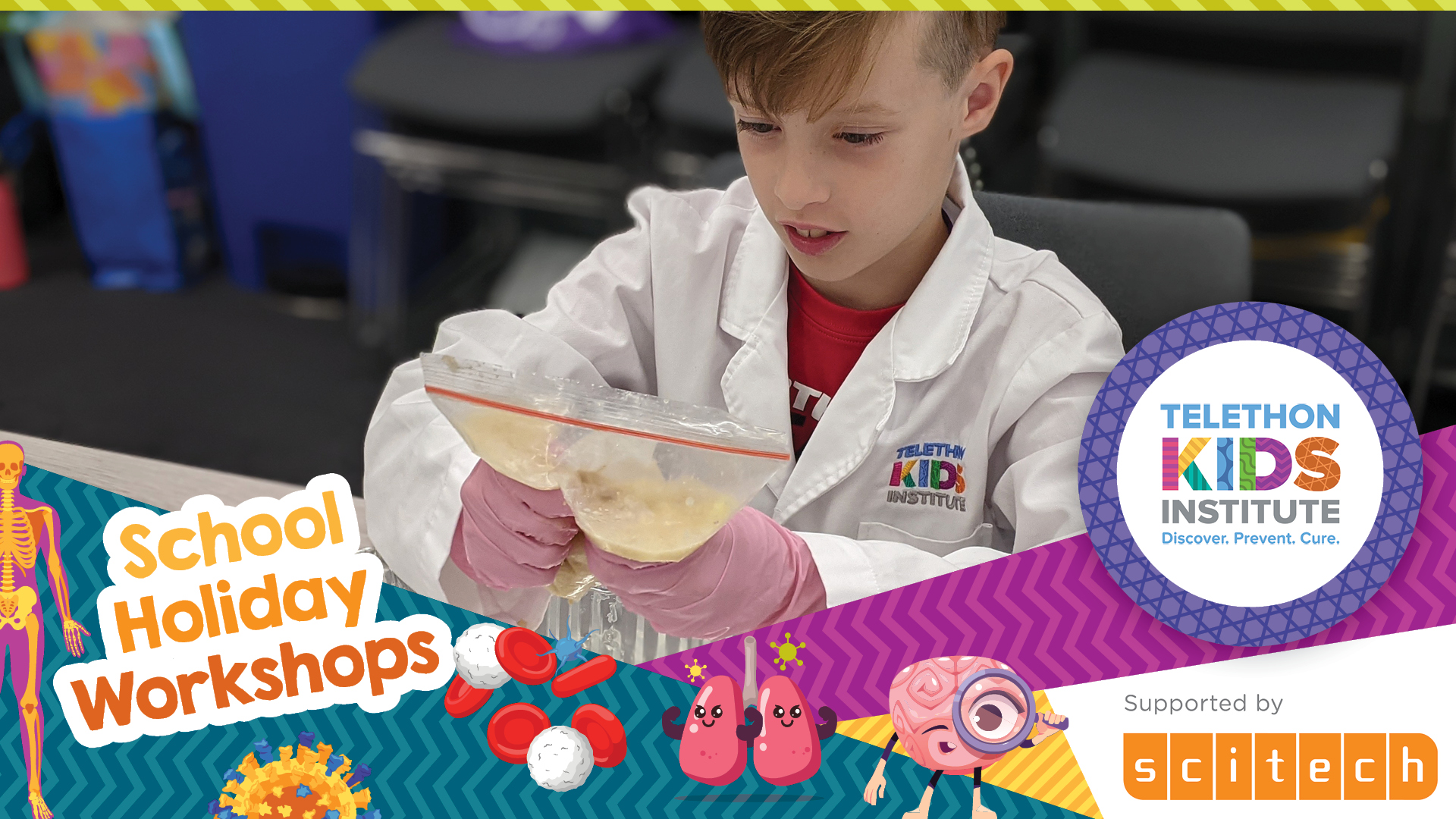Search

Discover resources and science activities for kids for the topic 'What's In Our Cells?'.

Discover resources and science activities for kids for the topic 'Poo and You!'.

Discover resources and science activities for kids for the topic 'Our Skin'.

Discover resources and science activities for kids for the topic 'Allergies'.

News & Events
Collaboration for the kidsHow do you brighten the day of kids in the Perth Children's Hospital when you can't visit them? You work with other sparkly and generous people to

News & Events
January school holiday workshopsThe The Kids School Holiday Workshops are back on this January holidays with a bigger and bolder program of fun and educational workshop for kids!

News & Events
Discovery Centre lightens the load for hospital familiesThe opening of the Discovery Centre has made trips to Perth Children's Hospital much more enjoyable for mum Alianna Celisano and her three boys.

News & Events
Meet scientist NickNick is a researcher, but he doesn't wear a lab coat. His research is all about helping kids with a disability get a good night's sleep.

News & Events
Holiday fun this AprilThe school holidays are fast approaching, which only means one thing – the The Kids Discovery Centre school holiday workshops are back with an exciting program of fun and educational workshops for kids!

News & Events
We're back at Scitech this July!Everything you need to know to book tickets to our upcoming school holiday workshops in July held at Scitech!
